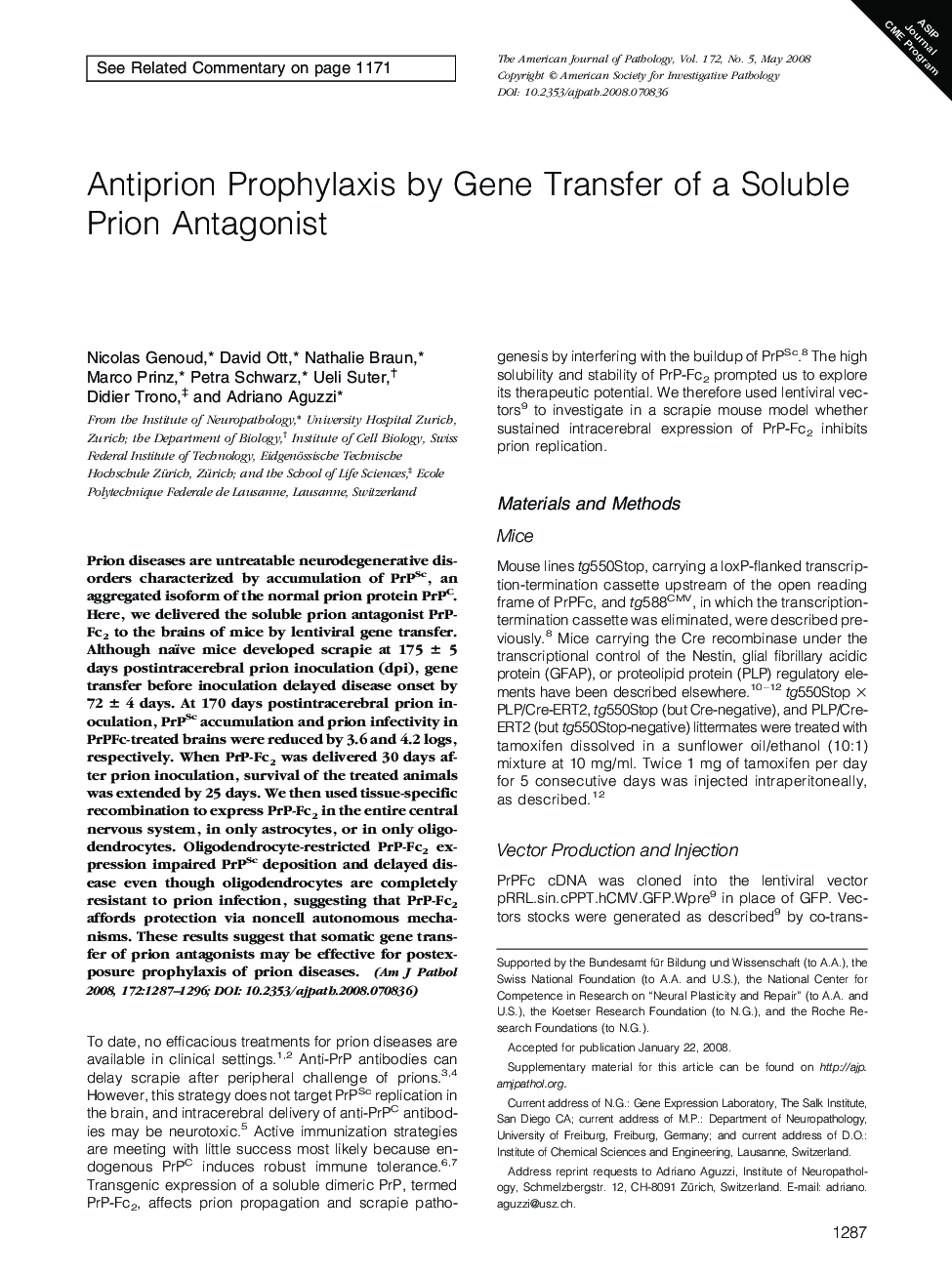| Article ID | Journal | Published Year | Pages | File Type |
|---|---|---|---|---|
| 2866042 | The American Journal of Pathology | 2008 | 10 Pages |
Prion diseases are untreatable neurodegenerative disorders characterized by accumulation of PrPSc, an aggregated isoform of the normal prion protein PrPC. Here, we delivered the soluble prion antagonist PrP-Fc2 to the brains of mice by lentiviral gene transfer. Although naïve mice developed scrapie at 175 ± 5 days postintracerebral prion inoculation (dpi), gene transfer before inoculation delayed disease onset by 72 ± 4 days. At 170 days postintracerebral prion inoculation, PrPSc accumulation and prion infectivity in PrPFc-treated brains were reduced by 3.6 and 4.2 logs, respectively. When PrP-Fc2 was delivered 30 days after prion inoculation, survival of the treated animals was extended by 25 days. We then used tissue-specific recombination to express PrP-Fc2 in the entire central nervous system, in only astrocytes, or in only oligodendrocytes. Oligodendrocyte-restricted PrP-Fc2 expression impaired PrPSc deposition and delayed disease even though oligodendrocytes are completely resistant to prion infection, suggesting that PrP-Fc2 affords protection via noncell autonomous mechanisms. These results suggest that somatic gene transfer of prion antagonists may be effective for postexposure prophylaxis of prion diseases.
